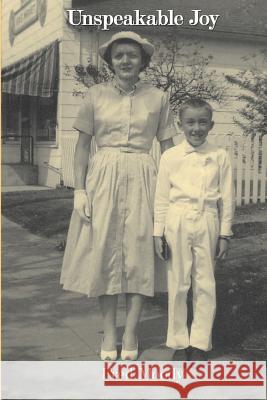Unspeakable Joy » książka
Unspeakable Joy
ISBN-13: 9781490354408 / Angielski / Miękka / 2013 / 260 str.
"A brave and eye-opening memoir by a writer who has stood on both sides of the wall between the public and the Catholic Church." --Kirkus Reviews "I admire this book as much as any book I've recently read, and I admire it the most of any of Moody's superb books. It's a brilliant investigation of the space between essay and fiction, and in that space is located all the world's woe that attaches to a lapsed Catholic, than whom no one is more Catholic. The book's conception is stunning, the prose is crystalline, and the vertiginous fall through layer after layer of epistemological uncertainty is not only extremely revelatory of the narrator's psyche but a real contribution to the contemporary discussion of the inherent instability of composition, memory, and 'memoir.'" -David Shields, author of SALINGER and HOW LITERATURE SAVED MY LIFE The memoir of a lapsed Catholic ex-seminarian who bore unwitting witness to the beginnings of decades-long, rampant, serial sexual abuse by Catholic priests of the young seminarians in their care, this book explores the peculiar, uniquely Catholic landscape of denial, ignorance, repression, and reverence that allowed priests to abuse children throughout the latter half of the twentieth century with no danger of detection. Fred Moody entered the seminary at age 14, in 1963, and left after four years, dimly aware that some deep, undefinable wrong lurked there. It would be another twenty-five years before an abuse victim from Moody's former seminary would report his own victimization to the police, whose subsequent investigation would uncover abuse going all the way back to Moody's days there. Reading the resulting investigators' reports and lawsuit documents, Moody finds that he recognizes many of the anonymous victims, who were classmates and even, in some cases, close friends. How could he not have known? Moody's attempt to answer that question leads him to thoroughly plumb both investigation documents and his own memories, forcing him to disturbing conclusions about his own culpability, the culpability of the institutional Catholic Church, and the culpability of the Catholic community of faith, all of whom participated in a culture that made detection of these crimes impossible. Moody's book depicts young twentieth-century seminarians, with their ignorance of sexual matters, their troubled sexual self-identities, their isolation, and their unquestioning obedience to priestly authority, as perfect victims, and the wider Catholic community of his time as a perfect breeding ground for sexual predation. To the question, "How could this have happened?," this memoir supplies an answer in the form of a detailed story of an institution--the seminary--that now has been phased out of existence, and that seems today to be something out of a medieval time. Yet it is also the story of a modern Church that continues to perpetuate many of the beliefs and practices that fostered and protected the sexual predators who operated the seminaries of Moody's time, and thus challenges the contemporary reader both to atone for the sins visited upon these victims and to take steps now to ensure that such predations never happen again under the cloak of Holy Mother Church.
Zawartość książki może nie spełniać oczekiwań – reklamacje nie obejmują treści, która mogła nie być redakcyjnie ani merytorycznie opracowana.











